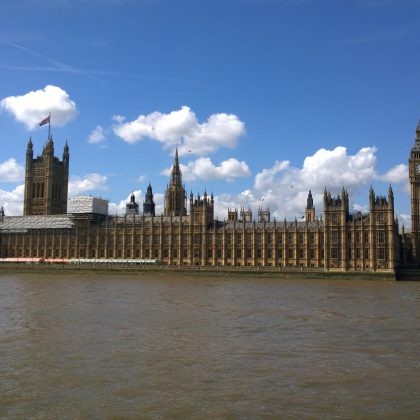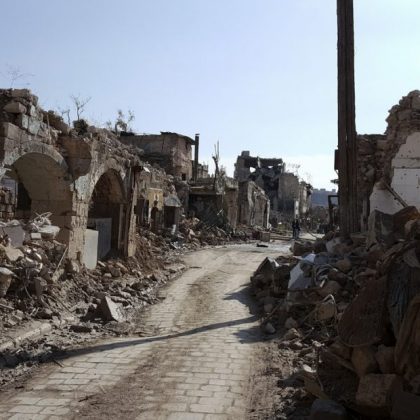Introducing a Mini Dossier on Exceptional Rule in Turkey in issue no. 55 of New Perspectives on Turkey
A failed coup attempt on July 15 marked the summer of 2016 in Turkey. The country is still trying to come to grips with the fact of how a secret structure outside the chain of command could have developed within the armed forces and how it could seek to take power by force, even bombing the nation’s parliament. Following the coup attempt, the government declared a state of emergency (olağanüstü hal, OHAL) on July 20 for three months, and has already extended it for another three months, in order to weed out the coup plotters from state institutions. Under the state of emergency, tens of thousands of military officers, bureaucrats, civil servants, and academicians have been removed from their positions, and thousands have been arrested as well. These acts have been carried out through government decrees (kanun hükmünde kararname), with little possibility of juridical recourse so long as the state of emergency continues. Dozens of journalists have also been imprisoned for their oppositional views. While the state of emergency rule gives the government leeway to stem the “parallel state structure” created by the Gülenist movement that was responsible for the attempted coup, there is some evidence that it also gives the government an opportunity to pass legislation that would even further advance the neoliberalization of the economy, especially in terms of new construction projects to be carried out with little regard for nature or historical sites.
On one level, the events that have occurred since July 15 boggle the mind in terms of their audacity, scope, and social and political consequences, inasmuch as authoritarian rule has reached new heights and left little space for critical assessment. But on another level, social scientists and historians can easily identify the lineages of the attempted coup, as well as of the state of emergency rule, in previous instances of military coups and juntas in the country.
In recent years, readers of New Perspectives on Turkey have had the opportunity to follow many of the developments in the run-up to the coup attempt, ranging from social policy to neoliberal reforms, and from (in the most recent issue) the influx of Syrian refugees to foreign policy. The upcoming issue, no. 55, continues to address the socioeconomic and political processes that Turkey is currently undergoing. The issue was conceived well before the coup attempt—but, whether coincidentally or not, all the articles in issue no. 55 speak to concerns that are relevant for researchers seeking to make social scientific sense of the events of the summer of 2016.
In this issue, we feature a mini dossier on exceptional rule in Turkey, consisting of two articles, one on the late Ottoman period and one on the early republican period. Noémi Lévy-Aksu’s essay on the idare-i örfiyye (state of siege) during the first constitutional period in the late nineteenth century discusses how the Ottomans created a legal tool of government for exceptional (and non-exceptional) times by taking advantage of various legal sources, including the French état de siège, as well as of the political context of the early Hamidian reign. Moving into republican times, Joakim Parslow’s article on theories of exceptional executive powers between 1933 and 1945 focuses on the fashioning of a legal system that dispersed emergency powers across various statutes, temporary laws, regulations, and decrees. Legal theoreticians of the period sought to normalize this contradictory and haphazard system by integrating prerogative into ordinary legality, rather than defending the rule of law. Lévy-Aksu and Parslow’s studies on exceptional executive powers might well assist historians, legal scholars, and political scientists in the development of frameworks for analyzing the current episode of exceptional executive power.
The other three articles in this issue, although written from perspectives as diverse as social policy, economics, and foreign policy, all concern the interplay between populism, neoliberalism, and authoritarianism over the last decade, a process which has already marked the state of emergency rule in place since July 2016.
Tim Dorlach’s article is a study of the sudden change that occurred in 2009 in the government’s pharmaceutical expenditure policy. Despite its neoliberal bent, the government, instead of privatizing the cost of medicines, forced national and international pharmaceutical producers to lower their prices, and thus reduce their profit margins, by introducing a global budget on public pharmaceutical expenditures. Dorlach shows how populist concerns won out over neoliberal economic concerns among policy makers.
In a different sector—namely, construction and property development—neoliberal and populist concerns have merged over the past decade. The rise in private and public construction during the first half of the AKP’s rule so far has contributed considerably to economic growth, albeit at the expense of manufacturing. Seda and Selva Demiralp and İnci Gümüş’s article on the construction sector emphasizes how it is characterized by clientelism, overcentralization, and a lack of transparency.
Özlem Tür and Mehmet Akif Kumral’s article investigates the paradoxes of Turkey’s Syria policy, focusing on the important episode of February 2012. They argue that the discourses of the foreign policy elite at the time began to oscillate between idealistic-normative calls for humanitarian intervention and realistic-utilitarian calls for interference. These discourses had a populist appeal, seeking as they did to justify Turkey’s role in the Syrian crisis. Ever since, this ambivalence has marked the country’s Syria policy, even as the country succumbed to civil war.
The forthcoming issue thus demonstrates New Perspectives on Turkey’s commitment to advancing critical social science research on Turkey. It also reaffirms the editorial board’s belief that social scientists have a role to play in defending the freedom of expression through sound scholarship, even and especially during difficult times.
Don’t forget to sign up for New Perspective of Turkey content alerts to ensure you are notified as soon as the new issue is published.
Deniz Yükseker, İstanbul Aydın University
Zafer Yenal, Boğaziçi University
Editors, New Perspectives on Turkey





